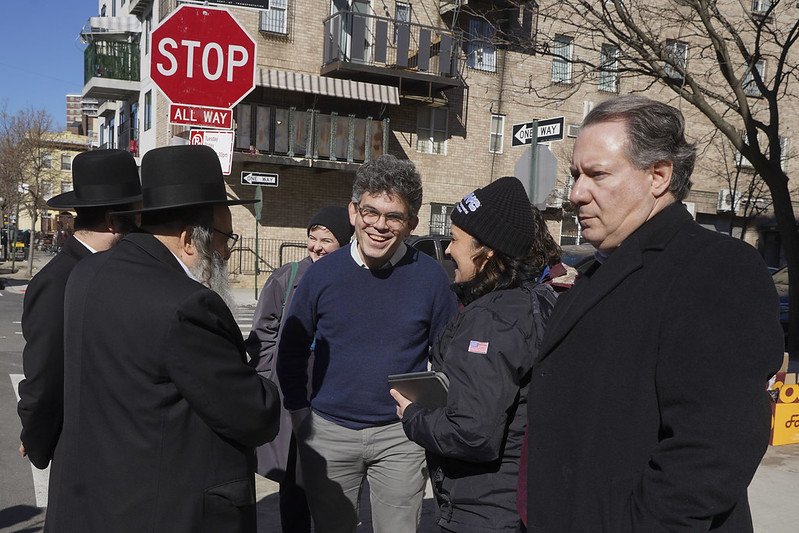NYC has 2K empty apartments for at-risk people. A new bill would use data to fill those slots.
April 11, 2024, 7:15 a.m.
Councilmember Lincoln Restler is introducing a bill to create a dashboard of vacant supportive housing units.

Councilmember Lincoln Restler is introducing a bill Thursday that aims to keep better track of New York City’s supportive housing program, which provides subsidized housing for people who are homeless, struggling with substance abuse, mental health issues or were formerly incarcerated.
Restler said in an interview that the patchwork housing system overseen by many different government agencies and a slew of providers is too opaque and results in too many apartments sitting vacant at any given time. The vacancies persist even as the city faces record-high rents, a ramp-up in evictions and a shelter system at capacity.
“The fact that we have 2,000 empty units today that could and should be housing people that are struggling before our eyes on our commutes to work, or when we walk our dogs at night, that's a travesty,” he told Gothamist. “We can fix it and we should.”
The bill would mandate the city create a dashboard detailing how many of these supportive housing apartments are vacant and why — such as whether they have a pending referral or are not move-in ready. The measure would also note how long they’ve been empty and how long it takes a client to apply and move in.
“This data and information, publicly available, will hold the relevant city or state agency accountable to really work closely with that provider to fill those vacant units and move people into housing,” Restler said. He added San Francisco also has a dashboard that’s worked well to make the program more efficient.
A spokesperson for the Department of Social Services, which would be tasked with posting the dashboard on its website and updating the data monthly, said the agency was reviewing the legislation.
"HRA is committed to expanding access to supportive housing and swiftly connecting vulnerable New Yorkers to available units," said DSS spokesperson Nicholas Jacobelli.
There are more than 40,400 supportive housing units in the city that allow tenants to pay 30% of their income toward rent while receiving voluntary services such as mental health and addiction treatment, public benefits, education and job training. The program began almost 40 years ago and initially targeted chronically homeless individuals with severe mental health diagnoses or with HIV or AIDS. But now, the program evolved to also help youth aging out of foster care, survivors of domestic violence, veterans and the formerly incarcerated.
But supportive housing is a convoluted system that takes money from several funding streams to cover housing for different populations. That means different units have different eligibility requirements, which could mean certain programs or certain providers have a harder time filling units than others.
There are also different types of units, some of which are more desirable and easier to fill, such as newer or recently rehabilitated units, or apartments where residents have their own kitchens and bathrooms, according to an April report on supportive housing by the Supportive Housing Network of New York. The report aimed to provide a comprehensive overview of all the sites.
“The supportive housing community recognizes the need for transparency and stands ready to work with the Council to ensure as many units as possible are made available to house formerly homeless individuals,” said Pascale Leone, executive director of the Supportive Housing Network of New York, a nonprofit representing providers.
Leone said data can help the program run more efficiently and help more New Yorkers in need.
“Data is helpful when it’s actionable. We have to make sure we are collecting the right data to understand what solutions are needed,” she said.
This story was updated to include a response from the city's Department of Social Services.
NYC is adding more affordable apartments than ever. But who are they meant for? Formerly homeless New Yorkers face eviction after city-funded nonprofit fails to pay rent